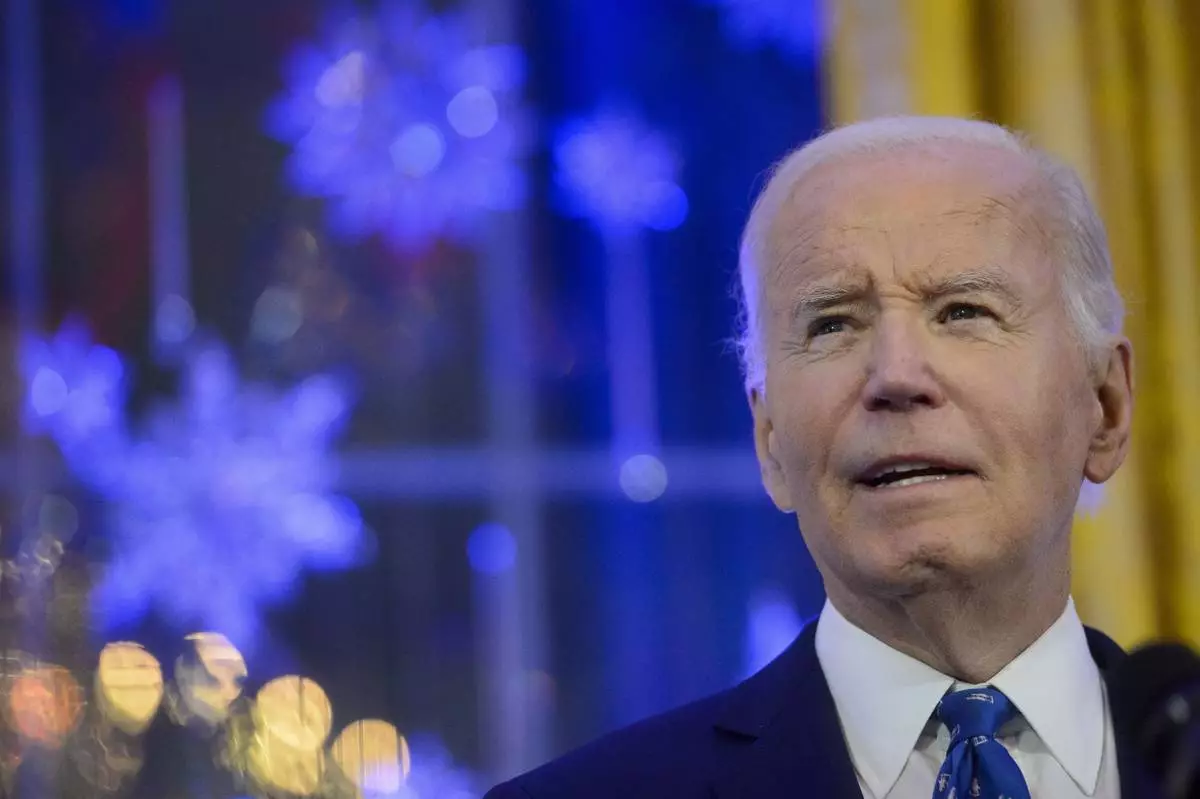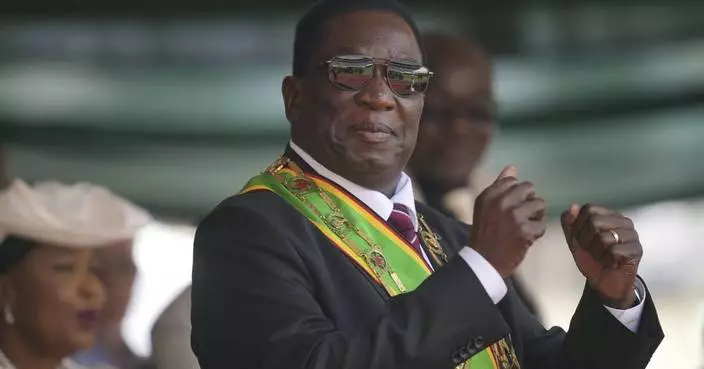WASHINGTON (AP) — President Joe Biden is abandoning his effort to cancel student loans for more than 38 million Americans, the first step in an administration-wide plan to jettison pending regulations to prevent President-elect Donald Trump from retooling them to achieve his own aims.
The White House expects to pull back unfinished rules across several agencies if there isn’t enough time to finalize them before Trump takes office. If the proposed regulations were left in their current state, the next administration would be able to rewrite them and advance its agenda more quickly.
Even as the Biden administration moves to pull back the rules, it pushed ahead with cancellation through other avenues on Friday. The Education Department said it was clearing loans for another 55,000 borrowers who reached eligibility through a program known as Public Service Loan Forgiveness, which was created by Congress in 2007 and expanded by the Biden administration.
As the pending Biden regulations are withdrawn, nothing prevents Trump from pursuing his own regulations on the same issues when he returns to the White House, but he would have to start from scratch in a process that can take months or even years.
“This isn’t the way I wanted it to end,” said Melissa Byrne, an activist who has pushed for student debt cancellation. “Unfortunately, this is the most prudent action to take right now.”
She blamed Republicans for putting the Biden administration in this position. “It’s a bummer that we have a GOP that is committed to keeping working-class Americans in debt,” Byrne said.
In documents withdrawing the student loan proposals, the Education Department insisted it has the authority to cancel the debt but sought to focus on other priorities in the administration’s final weeks. It said the administration will focus on helping borrowers get back on track with payments following the coronavirus pandemic, when payments were paused.
“The department at this time intends to commit its limited operational resources to helping at-risk borrowers return to repayment successfully,” the agency wrote.
The withdrawals are beginning as Washington braces for a potential government shutdown that could further complicate efforts by the Biden administration to tie up loose ends.
Another proposed rule that could face withdrawal is a measure that would have prevented schools from issuing blanket bans against transgender athletes. Trump could recast the pending modification to Title IX to forbid transgender athletes from playing in girls’ sports, one of his campaign promises.
An administration official, speaking on the condition of anonymity to discuss internal deliberations, said the administration still supports the goals of its regulatory proposals. However, the process can be lengthy because it requires legal reviews and collecting input from the public.
Federal agencies are now analyzing which rules to finish and which to pull back before the end of Biden's term, the official said.
In recent years, presidents have tended to rely more on executive orders and federal regulations to sidestep gridlock in Congress. However, the rulemaking process can be less durable than legislation, leaving policies more vulnerable to shifts between administrations.
There are dozens of other pending regulations across the Education Department and other agencies, ranging from relatively trivial updates to sweeping policies that carry weighty implications for the nation’s schools and businesses.
If a rule has already gone through a public feedback process under Biden, Trump could simply replace it with his own proposal and move straight to enacting the policy, effectively bypassing the comment period.
The pair of student loan proposals expected to be withdrawn Friday represented Biden’s second attempt at widespread debt cancellation after the Supreme Court rejected his first plan.
One of them is a proposal from April would have provided targeted debt relief to 30 million Americans. It laid out several categories of borrowers eligible for relief. Borrowers who saw their balances balloon because of interest would have had their accrued interest wiped away. Those who had been repaying loans for 20 years or more would have gotten their loans erased.
That proposal was halted by a federal judge in September after Republican-led states sued, and it remains tangled in a legal battle.
The second rule being withdrawn is a proposal from October that would have allowed the Education Department to cancel loans for people facing various kinds of hardship, including those struggling with steep medical bills or child care costs.
Although Biden never achieved the sweeping loan cancellations that he initially promised, his administration has forgiven an unprecedented $180 billion in federal student loans through existing programs.
“Because of our actions, millions of people across the country now have the breathing room to start businesses, save for retirement, and pursue life plans they had to put on hold because of the burden of student loan debt,” Biden said in a statement.
On Friday, officials announced they were erasing debt for another 55,000 workers — including teachers, nurses and law enforcement officials — through Public Service Loan Forgiveness. The program promises to cancel loans for borrowers who spend 10 years in government or nonprofit jobs.
The $4.28 billion in relief is expected to be the final round of public service loan forgiveness before Biden leaves office in January.
Biden’s rule on transgender sports was proposed in 2023 but was delayed multiple times. It was supposed to be a follow-up to his broader rule that extended civil rights protections to LGBTQ+ students under Title IX.
The sports rule would have barred schools from banning transgender athletes outright while allowing limits for certain reasons — for example, if it was a matter of “fairness” in competition or to reduce injury risks.
It sat on the back burner through the presidential campaign as the issue became a subject of Republican outrage. Trump campaigned on a promise to ban transgender athletes, with a promise to “keep men out of women’s sports.”
The Associated Press’ education coverage receives financial support from multiple private foundations. AP is solely responsible for all content. Find AP’s standards for working with philanthropies, a list of supporters and funded coverage areas at AP.org.

FILE - President-elect Donald Trump speaks during a meeting with the House GOP conference, Nov. 13, 2024, in Washington. (Allison Robbert/Pool Photo via AP, File)

President Joe Biden speaks during a Hanukkah reception in the East Room of the White House in Washington, Monday, Dec. 16, 2024. (AP Photo/Rod Lamkey, Jr.)













